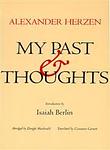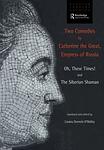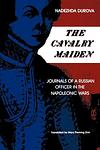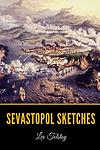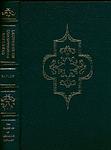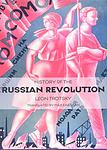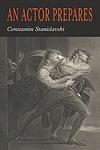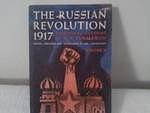The Greatest Russian "Nonfiction" Books Since 242
Click to learn how this list is calculated.
This list represents a comprehensive and trusted collection of the greatest books. Developed through a specialized algorithm, it brings together 291 'best of' book lists to form a definitive guide to the world's most acclaimed books. For those interested in how these books are chosen, additional details can be found on the rankings page.
Genres
Countries
Date Range
Reading Statistics
Click the button below to see how many of these books you've read!
Download
If you're interested in downloading this list as a CSV file for use in a spreadsheet application, you can easily do so by clicking the button below. Please note that to ensure a manageable file size and faster download, the CSV will include details for only the first 500 books.
Download-
1. The Gulag Archipelago by Aleksandr Solzhenitsyn
"The Gulag Archipelago" is a comprehensive and stark account of the Soviet Union's forced labor camp system. The narrative, based on the author's own experiences as a prisoner and on extensive research, documents the history, operation, and life inside the Gulag system. It also provides a critical examination of the regime's legal system, police operations, and political leadership. The book is an intense indictment of the Soviet Union's totalitarian regime, revealing its brutality, inhumanity, and vast scale of its prison camp network.
-
2. The Life Written By Himself by the Archpriest Avvakum
"The Life Written By Himself" is an autobiographical account by the Archpriest Avvakum, detailing his life as a religious figure in 17th-century Russia. The book chronicles his struggles, including his conflicts with the Russian Orthodox Church, his imprisonment, and his eventual execution. Avvakum's narrative provides a unique perspective on the religious and political climate of the time, showcasing his unwavering devotion to his faith and his unwavering determination to uphold his beliefs, even in the face of persecution.
-
3. My Past And Thoughts by Aleksandr Herzen
The book is a rich and vivid memoir by a prominent Russian intellectual and revolutionary who lived through a period of profound social and political upheaval. It combines personal narrative with philosophical reflections, offering a penetrating look at the author's life experiences, from his aristocratic upbringing to his involvement in radical politics. The work delves into the author's ideological development, his relationships with key figures of his time, and his observations on the social issues and political movements that shaped the 19th century. It is a testament to the author's profound engagement with the ideas of freedom, justice, and human agency in the face of an oppressive regime and a changing world.
-
4. My Childhood by Maxim Gorky
"My Childhood" is a poignant and powerful autobiographical account of a young boy's life in 19th-century Russia. The narrative explores the harsh realities of growing up in a dysfunctional family, with a cruel stepfather and an uncaring mother, against the backdrop of poverty and social unrest. The protagonist's struggles, resilience, and observations provide a vivid portrayal of the societal conditions of the time, while also illuminating the human capacity for hope and perseverance in the face of adversity.
-
5. State And Revolution by Vladimir Il’ich Lenin
This seminal political theory text delves into the role of the state in society and the necessity of proletarian revolution to dismantle the bourgeois state apparatus. It argues that the working class must seize state power, dismantle the existing state machinery, and establish a dictatorship of the proletariat as a transitional phase towards the creation of a classless, stateless society. The work critically analyzes the ideas of Marx and Engels on the state, while also addressing the practical aspects of revolution, including the suppression of the bourgeoisie by the proletariat. It serves as a theoretical foundation for understanding the dynamics of class struggle and the path towards socialism.
-
6. Reflections of a Russian Statesman by Konstantin P. Pobedonostsev
"Reflections of a Russian Statesman" is an insightful exploration of the author's conservative and monarchist views on the political and social issues of his time in Russia. As a prominent figure in the Russian government, he provides a candid critique of western democracy, liberalism, and the separation of church and state. He advocates for autocracy, theocracy, and orthodoxy, arguing that these are the pillars of a stable and prosperous society. The book offers a unique perspective on Russian politics and society during the late 19th and early 20th centuries.
-
7. The Way of a Pilgrim by Anonymous
"The Way of a Pilgrim" is a 19th-century Russian Christian text that follows an anonymous protagonist on a spiritual journey across the country. The protagonist is a wanderer who seeks to understand the teachings of the Bible and the nature of ceaseless prayer. Through his travels and encounters with various people, he explores the concept of the Jesus Prayer and the philosophy of the Eastern Orthodox Church. The book is a profound exploration of faith, spirituality, and the quest for divine connection.
-
8. Oh, These Times by Catherine the Great
"Oh, These Times" is a poignant and introspective memoir that delves into the personal experiences and challenges faced by the author, Catherine the Great. Through her candid and insightful narrative, she explores the complexities of ruling a vast empire, navigating political intrigue, and the constant struggle to maintain power and influence. With a blend of wit, wisdom, and vulnerability, Catherine offers a unique perspective on the tumultuous times she lived in, shedding light on the intricacies of leadership and the human condition.
-
9. The Memoirs Of Princess Dashkova by Ekaterina Romanovna Dashkova
"The Memoirs of Princess Dashkova" is a captivating autobiography that chronicles the remarkable life of a prominent Russian noblewoman. From her privileged upbringing and close relationship with Catherine the Great to her influential role in the Russian Academy of Sciences, Dashkova's memoirs offer a unique perspective on the political and cultural landscape of 18th-century Russia. With wit, intelligence, and a strong sense of self, Dashkova's narrative sheds light on her personal triumphs, challenges, and the turbulent historical events that shaped her life.
-
10. Notes From The Blockade by Lydia Ginzburg
"Notes From The Blockade" is a poignant memoir that provides a firsthand account of life during the Siege of Leningrad in World War II. The author, Lydia Ginzburg, vividly describes the hardships, hunger, and constant fear experienced by the city's residents, while also exploring the resilience and strength of the human spirit. Through her powerful narrative, Ginzburg offers a deeply personal and moving portrayal of survival amidst unimaginable circumstances.
-
11. Memoirs Of A Revolutionist by Vera Figner
"Memoirs of a Revolutionist" is a captivating autobiography that chronicles the life of a remarkable woman, detailing her journey from a privileged upbringing to becoming a prominent figure in the Russian revolutionary movement. Through her personal experiences and reflections, the author provides a vivid account of the political and social upheaval in 19th-century Russia, shedding light on the struggles, sacrifices, and triumphs of those dedicated to the cause of revolution. This thought-provoking memoir offers valuable insights into the complexities of revolution and the indomitable spirit of those who fight for change.
-
12. The Cavalry Maiden by Nadezhda Durova
"The Cavalry Maiden" is a vivid memoir of a young Russian woman who defies the conventions of her time by disguising herself as a man to join the Russian cavalry during the Napoleonic Wars. The narrative recounts her extraordinary experiences on the battlefield, her struggles with her secret identity, and her observations of military life during a tumultuous period in history. The author's passion for military service and her quest for personal freedom and adventure shine through as she provides a unique perspective on the roles of gender and social expectations in the early 19th century.
-
13. Sevastopol Sketches by Leo Tolstoy
The book is a collection of three short stories, each offering a vivid and gritty portrayal of the Siege of Sevastopol during the Crimean War. Through the eyes of various characters, ranging from a young and naive officer to seasoned and weary soldiers, the narrative delves into the brutal realities of warfare, the camaraderie among the troops, and the heroism and sacrifice on the front lines. The author's own experiences as a participant in the siege lend authenticity to the detailed descriptions of the battles, the strategies employed by both sides, and the daily struggles of life in the besieged city, ultimately presenting a poignant meditation on the nature of war and the human condition.
-
14. Journey From St. Petersburg To Moscow by Alexander Radishchev
This book is a seminal Russian work that takes the form of a travelogue, documenting the narrator's observations and reflections as he journeys between two major cities. Along the way, the narrator engages with various individuals from different social classes and discusses the social and political issues of the time, including serfdom, the justice system, and the condition of the peasantry. The work is notable for its critical perspective on the social injustices of 18th-century Russian society and is often regarded as a call for reform and enlightenment, which ultimately led to it being perceived as a threat by the authorities, resulting in the author's exile.
-
15. Fallen Leaves by Vasily Rozanov
"Fallen Leaves" is a collection of philosophical and autobiographical essays that delve into the author's musings on a wide range of topics, including religion, sexuality, and society. The work reflects the author's critical examination of modernity and the decline of traditional values, as well as his personal sense of isolation and disillusionment with the contemporary world. Through a series of fragmented and often controversial reflections, the author grapples with the existential challenges of his time, presenting a candid and introspective exploration of the human condition at the turn of the 20th century.
-
16. My Life by Leon Trotsky
This autobiography provides a detailed account of the life of a prominent Russian revolutionary and Marxist theorist. The book traces his early life, education, and political development, his role in the Russian Revolution and Civil War, his leadership of the Red Army, and his expulsion from the Communist Party and subsequent exile. It offers a unique perspective on key events in 20th-century history and an insight into the author's complex personality and intellectual development.
-
17. Conditioned Reflexes by Ivan Pavlov
"Conditioned Reflexes" is a groundbreaking work that delves into the study of behaviorism and the concept of classical conditioning. The author, a renowned physiologist, presents his findings on how an organism's responses can be triggered or conditioned by external stimuli, using his famous experiments with dogs as a prime example. The book significantly influenced the field of psychology and laid the foundation for future studies on learning and behavior.
-
18. Creatures that Once Were Men by Maxim Gorky
"Creatures that Once Were Men" is a collection of short stories that depict the harsh realities of life in the lower classes of Russian society. The stories are set in a night refuge for the homeless, where the characters, despite their grim circumstances, strive to maintain their humanity. Through their struggles, the author explores themes of poverty, addiction, despair, and the human spirit's resilience.
-
19. The Unwomanly Face Of War by Svetlana Alexievich
"The Unwomanly Face Of War" is a powerful and poignant collection of interviews with Soviet women who fought in World War II. Through their testimonies, the author sheds light on the often overlooked and untold stories of these brave women who served as snipers, pilots, nurses, and soldiers on the front lines. The book explores their experiences, sacrifices, and the lasting impact of war on their lives, providing a unique and intimate perspective on the realities of war from a female point of view.
-
20. History Of The Russian Revolution by Leon Trotsky
The book provides a detailed analysis of the Russian Revolution of 1917, written by one of its key leaders. It explores the socio-political and economic conditions that led to the fall of the Russian Empire and the eventual rise of the Soviet Union. The narrative delves into the complex interplay of various classes and political factions, the role of leadership, and the strategies employed during the revolution. The author uses his firsthand experience to offer insights into the events and their significance, presenting a critical examination of the revolution's phases, from the initial uprisings to the consolidation of Bolshevik power.
-
21. Theory Of Peasant Economy by Alexander V. Chayanov
"Theory of Peasant Economy" explores the unique economic behaviors and motivations of peasant households, which differ significantly from those of capitalist enterprises. The book argues that peasant economic decisions are primarily based on the family's labor balance rather than on maximizing profits. The author introduces the concept of the "family-labor farm," where the household's subsistence needs dictate agricultural production levels and the use of family labor. This seminal work challenges traditional economic theories by emphasizing the importance of internal family dynamics and demographic changes in understanding the economics of peasant life.
-
22. The Conquest Of Bread by Petr Kropotkin
"The Conquest of Bread" is a foundational text in anarchist and socialist thought, advocating for a society where private property is abolished and the means of production are communally owned. The author argues that the fruits of labor should be distributed equitably among all members of society, eliminating the class system and economic inequality. He critiques the failures of capitalist economies and feudal systems, proposing instead a decentralized, cooperative living structure based on mutual aid and voluntary cooperation. The book serves as both a critique of the existing social order and a practical guide for revolutionary change, emphasizing the importance of providing for the basic needs of all individuals to achieve a just and thriving society.
-
23. Morphology Of The Folktale by Vladimir Aioakovlevich Propp
"Morphology of the Folktale" is a seminal work in the field of folklore studies that analyzes the structure of Russian folktales to identify their simplest irreducible narrative elements and their arrangement. The author introduces the concept of "functions" which are common plot devices used in folktales, and categorizes these functions into a consistent and repeatable framework. This structural approach to the study of tales reveals that despite the varied and complex surface of stories, their underlying structures follow a limited number of patterns. This methodology not only provides a tool for analyzing tales but also influences subsequent structuralist and narratological approaches in the broader field of cultural studies.
-
24. An Actor Prepares by Konstantin Stanislavski
"An Actor Prepares" is a seminal work in the field of acting and theater, presenting a fictionalized account of a young actor's journey and experiences in learning the art of acting according to the innovative techniques developed by the author. Through a series of lectures and workshops led by a wise teacher, the book delves into various aspects of building a character, including the importance of imagination, concentration, and emotion memory. The narrative is both instructional and reflective, offering insights into the psychological preparation and discipline required to deliver authentic and compelling performances on stage.
-
25. The Russian Revolution by N.N. Sukhanov
"The Russian Revolution" is a detailed eyewitness account of the pivotal events that shaped Russia in 1917. The author, a participant and observer in the political circles of Petrograd, provides a comprehensive narrative of the revolution from the February overthrow of the Tsar to the October seizure of power by the Bolsheviks. Through his personal experiences and assessments, the book offers a vivid portrayal of the struggles, the political debates, and the personalities involved in the revolution, including Lenin, Trotsky, and other key figures. The author's unique perspective as a socialist but critical observer of the Bolsheviks adds depth and complexity to the historical analysis of the revolution's development and outcomes.
Reading Statistics
Click the button below to see how many of these books you've read!
Download
If you're interested in downloading this list as a CSV file for use in a spreadsheet application, you can easily do so by clicking the button below. Please note that to ensure a manageable file size and faster download, the CSV will include details for only the first 500 books.
Download

